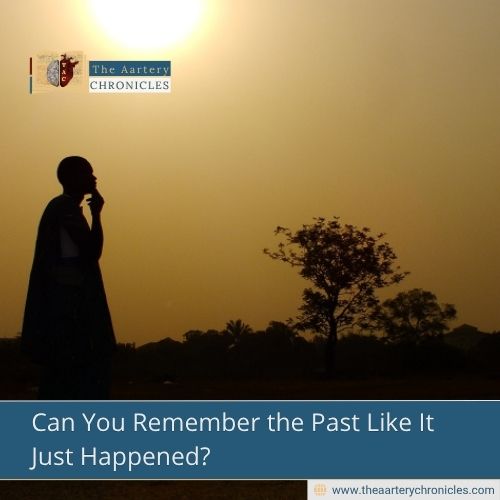

Can You Remember the Past Like It Just Happened?
A groundbreaking study published in the Proceedings of the National Academy of Sciences (2025) suggests that certain memories we believe are lost may actually be revived through a technique known as mental time travel. This finding could open new doors in the understanding and treatment of memory loss and related conditions.
What Is Mental Time Travel?
Mental time travel is the process of mentally placing yourself back in the time and situation when a memory was first formed. This includes remembering not just the event, but also the sights, sounds, smells, and emotions you experienced at that time. This technique taps into contextual memory, which links memories to the environments and emotions in which they were created.
Why We Forget: The Science of Memory Loss
Forgetting is a natural aspect of how our memory functions.. Right after we learn something, we are more likely to forget it quickly, especially within the first few days or weeks. Over time, however, the rate of forgetting slows down due to a process called memory consolidation.
In short, we lose more details early on, but the memory that remains becomes more stable over the long term. This pattern of forgetting is nonlinear, meaning it does not decline at a steady rate.
Can Memories Be Recovered?
German researchers recently conducted a large-scale study with 1,216 participants to test the idea that mental time travel could “rejuvenate” old memories, essentially making them behave like they were just created.
This idea is called the rejuvenation hypothesis, which suggests that by mentally going back to the time when the memory was formed, we can temporarily reset the memory’s state, improving its retrievability and slowing down future forgetting.
How the Study Worked
Participants were divided into groups and asked to remember either:
- A list of words (in the first experiment), or
- A short passage of text (in the second experiment)
Some groups simply recalled the information without using any special technique. Others were guided through mental time travel by being asked to recreate their thoughts, feelings, and surroundings from the time they first learned the material. These participants were then tested at different times: 4 hours, 24 hours, or 7 days after learning.
Memory Really Can Be Rejuvenated
The results were striking. Participants who used context reinstatement (mental time travel) showed a restored memory pattern. Their forgetting rate became similar to how it was immediately after the memory was first formed, effectively resetting the memory’s timeline.
Importantly, this effect was strongest when the time between learning and mental time travel was shorter (such as 4 or 24 hours). When the gap extended to 7 days, the memory rejuvenation effect was weaker, but still present.
A Memory Boost, Not Just a Momentary Fix
One important takeaway is that this effect wasn’t just temporary. The study showed that the boost in memory retrieval lasted over time, rather than fading quickly. This contradicts earlier beliefs that context-based memory tricks offer only short-term help.
The researchers compared this process to the Greek myth of Sisyphus, who constantly pushes a boulder up a hill only to have it roll down again. In this case, mental time travel rolls the memory “boulder” back up the hill, giving it another chance to stick.
Could It Work Outside the Lab?
While the study is promising, it was done in a controlled setting using relatively simple memory tasks. Real-life memories are often tied to richer, more emotional contexts like a family trip or a major life event.
Because of this, researchers believe that mental time travel might be even more effective in daily life, though more studies are needed. It also raises questions about how this method could help people with age-related memory loss, PTSD, or dementia.
Conclusion
This study offers exciting possibilities in the world of memory and mental health. While it doesn’t promise to recover all forgotten memories, it shows that our brains may hold onto more than we think and with the right methods, we can bring those memories back to life.
Source: Inputs from various media Sources

Priya Bairagi
Reviewed by Dr Aarti Nehra (MBBS, MMST)
I’m a pharmacist with a strong background in health sciences. I hold a BSc from Delhi University and a pharmacy degree from PDM University. I write articles and daily health news while interviewing doctors to bring you the latest insights. In my free time, you’ll find me at the gym or lost in a sci-fi novel.








